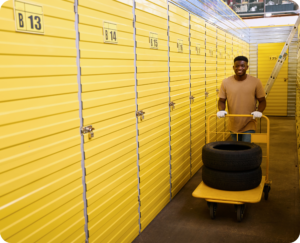Do you own or intend to own a restaurant or any other establishment that serves food and beverages to the public? Running a restaurant has its challenges. Not only do you have to worry about the staff, the service, the quality of food, and the customer experience, but there is the administrative side of the business to think about as well.
As you can imagine, things like taxes, insurance, customer safety, profitability, and regulations can consume a substantial amount of your time and energy.
That’s why we decided to make at least one aspect of it easier by explaining everything you need to know when it comes to insuring this particular type of business.
What is Restaurant Insurance?
Restaurant insurance can help to cover unexpected costs and to keep your establishment open if things were to suddenly go terribly wrong. Typically, insurance can cover costs to replace spoiled ingredients due to a broken refrigerator or even the costs of a lawsuit from a customer who has been poisoned by contaminated food.
No matter how hard you try to make sure everything is perfect, the unexpected can occur, but with the right coverage, the business you’ve worked so hard to build can continue to move forward.
Who needs this kind of insurance?
Chances are, if you serve any type of food or drink, you will need this insurance. Being in the food and beverage industry can bring major risks.
Establishments that should consider insurance:
- Fast food eateries
- Ice cream shops
- Fine dining restaurants
- Full-service restaurants
- Buffets/Catering
- Coffee shops
- Pizzerias
- Food carts
- Exclusive take-out locations
- Delicatessens
- Restaurant franchises
- Bakeries
Basically every kind of food business that exists. Throughout this article, we will use the blanket term “restaurant” to make things easier to understand. However, whenever you read the word “restaurant,” have YOUR business in mind. 😉
What coverage do restaurants need to have?
If you own a small establishment, the Business Owner Policy (BOP) is the bare minimum your restaurant should have.
BOP combines three general insurance coverages that are crucial to almost every business:
- General Liability
- Commercial Property
- Business Income
This policy is usually sold for a premium value lower than the total cost of individual coverage.
If you have employees, it will likely be mandatory to purchase a Workers’ Compensation policy as well.
General Liability
General Liability serves to protect your restaurant from third-party claims, including lawsuits. The policy starts with standard coverage, but can be supplemented to cover more specific liabilities such as alcohol liability, third-party assault liability, employer practices liability, and cyber liability.
The coverage will depend on the specifics of your business, your location, your employees and your customer base. It is always encouraged to seek guidance from your Breezy Seguros agent so that your establishment is properly covered.
These coverages can be grouped into a single policy, but in some cases the policies are individual.
Commercial Property
Commercial property insurance is for insuring items owned by your company, it’s as simple as that. It could be the building in which your restaurant operates, the restaurant’s equipment and utensils, the food that is in the freezers and pantry, tables, chairs, televisions and computers, both in the lounge and in the offices.
It is very important to take an inventory and get replacement values for each item before quoting insurance.
If a fire, storm or theft causes a loss of property, adequate commercial property insurance will cover it.
Business Income
Business Income is business interruption insurance, should your restaurant’s operations need to be interrupted. Let’s imagine that a fire, for example, destroys your kitchen and you have to wait for the repair work to start cooking again. How would you meet the company’s financial commitments in the meantime?
It is Business Income coverage that will guarantee the payment of your employees’ salaries, equipment rentals and other fixed bills for your restaurant.
Workers’ Compensation
Oftentimes, Workers’ Compensation insurance is mandated by the government. The amount and extent of mandatory compensation varies from state to state, but is mandatory in almost all.
Workers’ compensation is your employee’s protection in case an accident were to happen while they are at work. This coverage covers medical costs, salary replacement, temporary leaves and even pensions for absence from work, depending on the severity of the accident.
Additional coverages that might make sense
Each restaurant has a different reality with very different operations. Some make deliveries, others operate on wheels, some serve only in the morning and others until dawn. Some work with two people from the same family, others need a team of 50 employees. Therefore, it is important to know the different coverage options that may make sense for some and not fit for others.
Commercial Auto Insurance
Commercial auto insurance is for vehicles owned, leased or loaned by the company. For example, if your employees are using their own cars to deliver pizzas from your pizzeria, your business is exposed. The cars are unprotected, and your business must take out specific insurance for commercial vehicles. This is also something to consider if you have valet service.
Parking responsibility (if you offer valet)
If you have valet service and a customer’s vehicle is damaged while in your care, how do you resolve it? General Liability insurance does not cover car accidents, so you need Garagekeepers Liability coverage that covers customer vehicles in your care, custody and control.
Employee Dishonesty
In the day-to-day rush, it is difficult to check each bill for each table or order in your restaurant, as it is sometimes impossible to check each of the items that the establishment has. Employee dishonesty coverage helps pay a loss if an employee steals money or property from your company.
Contaminated Food
If a city health inspector finds food contamination and closes your business, this coverage helps pay for cleaning equipment and replacing contaminated food if your business closes. It can also reimburse you for lost income and other expenses while your business is closed.
Equipment Breakdown
This coverage can get you out of trouble if some of your restaurant’s critical equipment stops working. Imagine if the stove breaks or the freezer stops freezing due to a power surge. You can’t prepare the dishes and you lose all your frozen stock. Equipment breakdown coverage helps pay for expenses caused by sudden breakdown of machinery or other equipment.
Liability Coverage for Alcoholic Beverages
If a customer drinks too much alcohol in your restaurant, you can be held responsible for the damage he causes. This coverage can save you from lawsuits and damages that you weren’t even directly responsible for.
There are many and varied ways to cover your business. You can cover your digital operations, your bills, external plates and signs, your customers’ cars in your private parking lot, that expensive chandelier that is the key piece of your salon, but exceeds the limits of property insurance.
That’s why we will never get tired of reminding you to orient yourself with your Breezy Seguros agent.
What are the factors that affect the cost of my restaurant insurance?
As we have said before, each case is different. Each restaurant or establishment that serves food and drink is unique, so it is impossible to pinpoint what coverage is needed or what the value of insurance for restaurants is.
That said, here are some key factors that insurers consider when pricing their insurance coverage:
- Location
- Volume (sales, payroll, m²)
- Property type
- Activities offered (entertainment, mechanical bulls, deliveries, off-site catering)
- Opening hours
- Proportion of alcohol sales
- Loss history
- Years in business
- Coverage levels
- Lease requirements
For example, a bar open until 2 am with live music every weekend and 75% of sales being alcohol is likely to pay more for insurance than a sandwich shop that only sells juice and sandwiches, does not offer entertainment and closes at 8pm.
How much can insurance cost for a restaurant?
As stated above, insurance costs for restaurants can vary dramatically and often differ in the type of operation. A small bakery can get all the relevant coverages for $1,500 a year, while a large restaurant that owns a building, serves alcohol, and a super-equipped kitchen can cost between $6,000 and $10,000 a year.
If you need a rough estimate, but one that is focused on the particulars of your business, don’t hesitate to get your free quote today! It’s free and has no strings attached!








